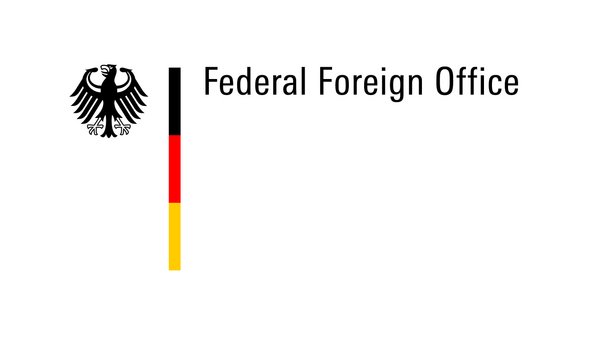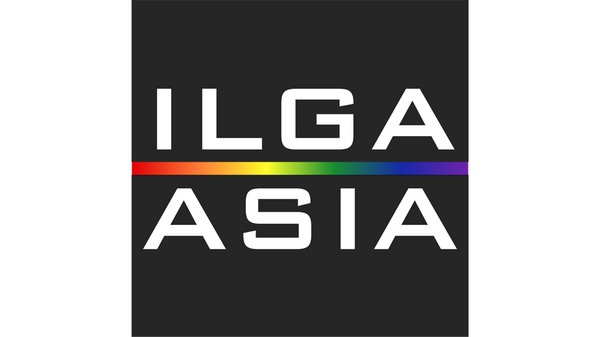-
Topics
backTopicsOur programs create spaces where open-minded leaders can gather for breakthrough conversations on pressing global issues – each aligned to one of the following pillars:
-
Events
backEventsExplore the variety of events Salzburg Global hosts within Austria and in the rest of the world. Learn more about our programs and what else happens at Schloss Leopoldskron.Upcoming EventsFeb 05 - Feb 07, 2026Peace & JusticeDisruption and Renewal: Charting the Future of the International Rule of Law, Democracy, and PluralismSalzburg Cutler Fellows Law ProgramApr 13 - Apr 18, 2026CultureCreating Futures: Rethinking Cultural Institutions, Infrastructure, and InvestmentCulture, Arts and Society
- Insights
-
Fellowship
backFellowshipSince 1947, more than 40,000 people from over 170 countries have participated in Salzburg Global's sessions. Collectively, these alumni are known as Salzburg Global Fellows.
-
About Us
backAbout UsSalzburg Global is an independent, non-profit organization committed to creating spaces that overcome barriers and open up a world of better possibilities.Our Approach
-
Support Us
backSupport UsYour generosity helps us gather open-minded leaders for breakthrough conversations, while creating space for dialogue that overcomes barriers and opens up a world of better possibilities.
- Donate
- Date
- Sep 15, 2020
- Session no.
- Session 638
- Program
- Salzburg Global LGBT* Forum
- Location
-
Online
Share
Peace & Justice
Global Online Forum on LGBT* and Faith: Online Convening
Worldwide, LGBT people are insisting on their inclusion in religious and cultural traditions; and religious congregations across all denominations have begun to interpret their own beliefs in more inclusive ways. Such positive changes are still nascent, and they must be supported and expanded to achieve LGBT equality globally.
In 2020, the Salzburg Global LGBT* Forum began a new initiative to address issues of religion, cultural history, and LGBT inclusion (and exclusion), convening LGBT human rights defenders and cultural and religious leaders across faiths, geographies, and generations. This gathering of Fellows forms part of an online discussion about the inclusion of LGBT* people in faith communities and religious and cultural traditions: the Global Online Forum on LGBT* and Faith.
* LGBT: Lesbian, Gay, Bisexual and Transgender. We are using this term as it is currently widely used in human rights conversations on sexual orientation and gender identity in many parts of the world, but we would not wish it to be read as exclusive of other cultural concepts, contemporary or historical, to express sexuality and gender, intersex and gender non-conforming identities.
Date
Sep 15, 2020
Session no.
Session 638
Location
Online
Share
PROGRAM INFO
This is the first of two online gatherings of Fellows that form part of the Global Online Forum on LGBT* and Faith, which, in addition to these online gatherings will also comprise of a blog series and public webinar.
Fellows will reflect on the experiences and ideas raised in the blog series, which seeks to address the following questions:
- What is needed for religious communities and leaders to be instrumental in promoting the wellbeing, equality and inclusion of LGBT people in faith communities and society?
- How do LGBT people, today and throughout history, enrich and change the religious communities of which they are a part?
This program is by invitation only.
Fellows of the Salzburg Global LGBT* Forum represent a global range of religious and cultural backgrounds and welcome participants from all sexual orientations, gender identities, and gender expressions. Professionally, the Forum includes:
- Activists, community leaders, and emerging young voices advancing LGBT equality;
- Religious leaders including clergy and laity, and leaders of faith-based organizations; and
- Artists, journalists, filmmakers, social media experts, photographers, researchers, and writers.
- How can we increase the visibility and impact of tolerant and inclusive attitudes towards LGBT people within religious traditions?
- How can we challenge the view that LGBT people and communities – despite much evidence in religious texts – are products of secular modernity?
- How can we best support and elevate the voices of religious leaders (including those from the ranks of both the ordained and laity) that promote inclusivity and equality for LGBT people and communities?
- How can we combat the voices of faith congregations that promote condemnation, violence, and hate for LGBT people within their own communities?
In 2015, thirty leaders representing Baha’i, Buddhist, Christian, Hindu, Jewish, Muslim, and Sikh organizations issued a formal joint expression of support for ending poverty by 2030. In 2017, many of the world’s most prominent religious leaders made a joint statement encouraging people everywhere to make friends across religions and to counter the idea that people view each other’s religions with distrust or disdain ― and to potentially even reduce violence conducted in the name of religion. In March 2019, participants at an interfaith conference emphasized the role of religions in contributing to the implementation and achievement of the UN Sustainable Development Goals (SDGs).
All of these initiatives emphasize the potential positive impact of religion, and over centuries, faith-based organizations have proven adept at providing quality public services at scale, making valuable financial contributions toward social improvements, educating and advocating for positive change, and developing trust across otherwise conflicting groups (racial, ethnic, ideological, geographic, etc.).
However, despite the “leave no one behind” ethic of the SDGs, and the core beliefs of tolerance and love at the heart of most of the world’s religions, many religious communities continue to exclude LGBT people from their ranks, ignore their role in religious and cultural traditions, and actively contribute to the suffering afflicting LGBT communities. A globally connected movement towards more intolerance, on the basis of religion and the “protection of the family” and with a strong anti-gender agenda, makes itself felt in North America, Europe, Russia, parts of Latin America, Africa and Asia. In fact, LGBT people remain some of the world’s most vulnerable in matters of health, economic wellbeing, education, political and civic participation, and personal security and violence. This makes it all the more important that they are included in the benefits sought by these interfaith appeals and religious calls to action.
Thankfully, such historical exclusion is beginning to dissolve. Worldwide, LGBT people are insisting on their inclusion in religious and cultural traditions; and religious leaders and their congregations across all denominations have begun to interpret their own beliefs in ways that are more inclusive. In a 2018 Declaration of the National Consultation on Interfaith Engagement with Human Sexuality and Gender Diversity, the National Council of Churches in India (NCCI) emphasized “the innate ability of each faith community to understand, accept and celebrate gender, sexual and sexuality identities.”
The Church of Sweden, in collaboration with the Global Interfaith Network, has produced two books addressing human sexuality and human dignity from the perspective of a range of faith traditions. Such positive changes are still nascent, however, and they must be supported, promoted, and expanded to achieve the potential they represent for advancing equality globally. To this end, in August 2020, Salzburg Global Seminar will begin a new initiative of the Salzburg Global LGBT* Forum to address issues of religion, cultural history, and LGBT inclusion (and exclusion) in religious communities: “Faith Is…?”
The three different elements of the 2020 program - blog, online Fellow gatherings and webinar - combined seek to achieve the following:
- Initiate an online discussion and the collection of materials depicting the role of LGBT people and gender diversity in religious practices, traditions, and communities as well as resources and initiatives that integrate religious core values in ways that promote LGBT tolerance;
- Capture for broader dissemination blog contributions on two lead questions:
- What is needed for religious communities and leaders to be instrumental in promoting the wellbeing, equality and inclusion of LGBT people in faith communities and society?
- How do LGBT people, today and throughout history, enrich and change the religious communities of which they are a part?
- Identify how religious leaders can create a common dialogue with each other and raise the baseline for tolerance within their faith / across faiths and identify potential but not yet active supporters within religious communities as well as strategies for motivating their action; and
- Further develop and support participants by connecting them to the ongoing work of the Salzburg Global LGBT* Forum and its members across 72 countries. This global network is curated through regular updates delivered via email newsletters, the Forum’s website, and a secure member-only online community where members continue collaborations begun in Salzburg and forge new alliances within the Forum’s broader network.
Faith Is...?
Launching in 2020, the Salzburg Global LGBT* Forum will begin an exploration of the ways in which religious and cultural leaders, congregations, and LGBT people can together form inclusive and supportive communities of understanding.
Starting with a series of online activities in late 2020, the Faith Is…? initiative will build on the experience gained in the Salzburg Global LGBT* Forum’s “Family Is…?” Project, which explored the definition of family and the position of LGBT family members, including in their families of birth, their families of choice, and the families they raise.
Participants in the Global Online Forum on LGBT* and Faith will contribute to the co-design of the forward strategy of the “Faith Is…?” initiative. This strategy will identify opportunities for the project to influence public debate and shift mindsets through the creation and dissemination of stories, publications, video testimonials, and social media campaigns. The Forum will reflect upon ways that can influence specific audiences including community, cultural, and religious leaders; national, international, and local policymakers; media multipliers; foundations; and others.
Note: This initiative was planned to launch in July 2020 in Salzburg, Austria. Given the uncertainties surrounding global travel in the near to mid-term due to the COVID-19 pandemic, we did not think it feasible to hold a globally representative in-person meeting of the Salzburg Global LGBT* Forum in 2020. The transformation of the in-person program to an online program is with full active support of our funders.
REPORT
A full report of our online convening which took place on Zoom on September 15, 2020 can be downloaded here
A full report of our online convening which took place on Zoom on October 20, 2020 can be downloaded here
A full report of our online convening which took place on Zoom on November 24, 2020 can be downloaded here
The 2020 LGBT* and Faith report can be downloaded here



